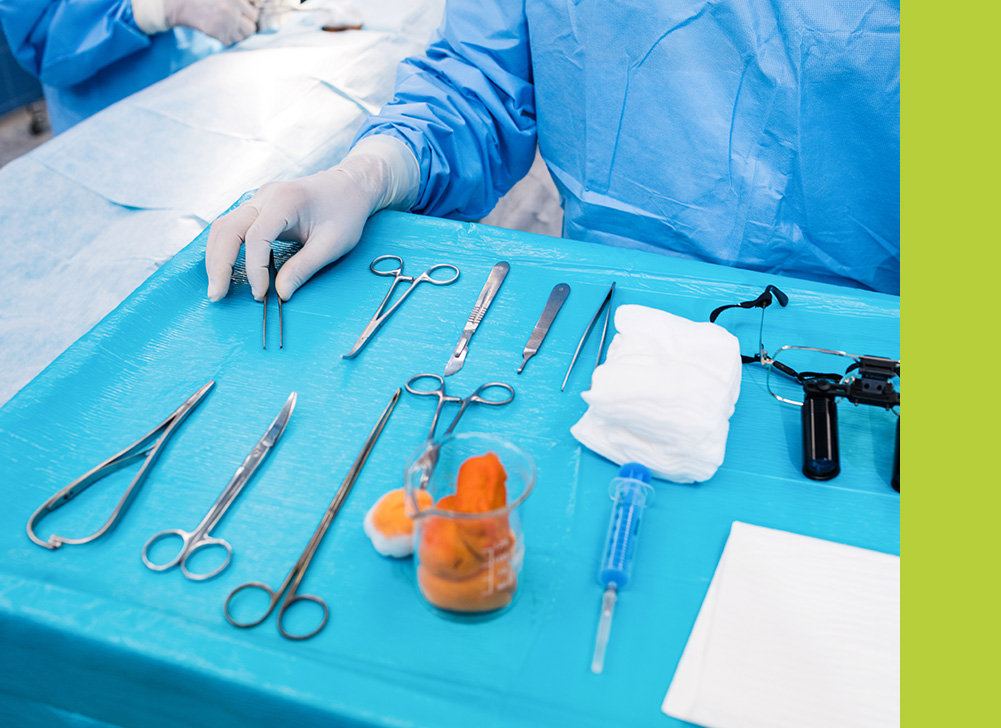About The ABSA
The ACE Surgical Assistant Program is approved by the Colorado Department of Higher Education and graduating students are eligible to sit for national certification with the American Board of Surgical Assistants (ABSA).
Upon completing the Surgical Assistant Program, you receive a certificate of completion and eligibility to sit for ABSA’s national certifying exam. You’ll earn the prestigious surgical title of SA-C (Surgical Assistant – Certified).
The American Board of Surgical Assistants was founded in 1987 by Paul F. Weeks, MD, ScD/PhD as a national credentialing organization for surgical assistants. The ABSA administers a national/international certification examination, for surgical assistants, covering all surgical disciplines and all areas of perioperative medicine. The examination evaluates candidate knowledge of surgical anatomy, procedures and techniques, diagnostic studies, emergency situations, OSHA regulations and general patient safety.
ABSA acknowledges that the role and function of a surgical assistant is to assist the surgeon in the performance of a surgical procedure. It is understood and acknowledged that certification as a surgical assistant through the ABSA (SA-C) does not allow for any independent performance of any medical or surgical procedures within the United States of America or its territories.

The ABSA Mission
As a leading provider of surgical assistant examination and credentialing, the ABSA strives to develop and maintain quality standards for the surgical assistant, thereby promoting safety and protection of the public. These standards include furtherment of knowledge, education, and ethical conduct of the surgical assistant, through the continuation of the credentialing process and the promotion of pre and post educational training.
Why The ABSA?
For ACE alumni, the ABSA credential is a no-brainer. They earn the title SA-C. Your credential says something about you. For instance, your Certification of Completion from ACE says you graduated from a Surgeon-Level program. The ABSA shares that philosophy with ACE. You are being trained and certified to take on a role in surgery that was historically covered by another surgeon or surgical resident.
In fact, the American College of Surgeons still holds that the ideal first assistant is a surgeon or surgical resident. This ideal is taken seriously by ACE with its Surgeon-Level training and by ABSA with its nationally recognized certifying exam. We also see Surgical Assisting as a different profession from Surgical Technologists and OR Nurses, complete with their own unique standards and skillsets.

On the other hand, others see Surgical Assisting as an extension of the Surgical Technologist or OR Nurse. The problem with this viewpoint is it shows in their training and their certifying exams. That could be unintentionally harmful to the Surgical Assistant.
Case in point, the Surgical Tech. The OR staff will often continue to view them as a Surgical Tech even though they have successfully graduated from a Surgical Assistant Program. This leads some on the staff to criticize tasks performed by the Surgical Assistant exclaiming, “techs can’t do that!” You need a strong come back. Surgeon-Level training and certification that separates tech from assistant helps them to credibly respond, “I know techs can’t do that. That’s why I went back to school and was certified as a Surgical Assistant.”
Being a surgical assistant is incredibly rewarding. First, you get to help people. While many other careers help people, as a surgical assistant, you get a first-hand view of people whom you are truly helping. You are assisting in a surgery that can be life-changing and give people back the life they once had or never had. It's a truly rewarding career that is hard to find elsewhere.
Reasons to Become a Surgical First Assistant

Career advancement.
The need for surgeries in the United States is only expected to rise as our population continues to age. Plus, with all the latest advances in medical technology, new surgeries are becoming possible. This means your career opportunities will continue to grow, too.

Opportunities to specialize.
There are dozens of ways you can specialize in surgical assisting. From cardiothoracic surgery to orthopedic surgery, you'll be able to gain knowledge in the medical fields you are particularly interested in.

Become part of a team.
There is something special about teamwork, especially when it comes to improving people's lives. You'll form close relationships with those whom you work with that can be extremely rewarding and fulfilling.

Flexible schedules.
Since surgeries take place at all times of the day, you will have flexibility in your shift times. This is great for those who are looking for a work/life balance or who have children.

Extremely rewarding.
As mentioned above, being a surgical first assistant is extremely rewarding. You are making a real difference in people's lives every day.
Reasons to Choose ACE Surgical Assisting
Who Makes Great Candidates for Surgical First Assistants?
Those with prior experience in the healthcare field make great candidates for surgical first assistants. Many are surgical technologists who are those who work alongside and assist surgeons during a surgery. However, any allied health professional looking to broaden their career paths or who have an interest in surgery make great candidates, as well as those with a science background. From phlebotomists to nursing assistants, we encourage you to apply with us.




